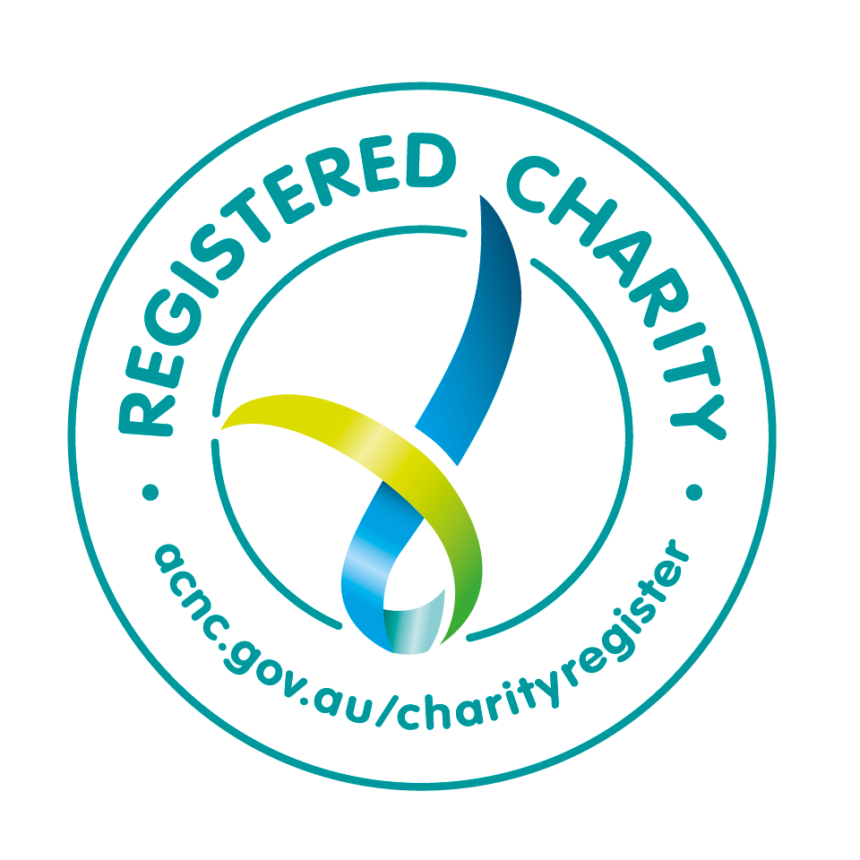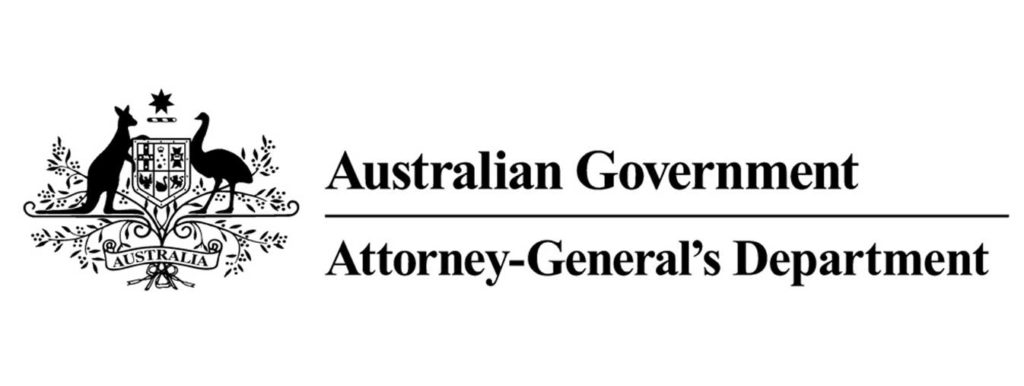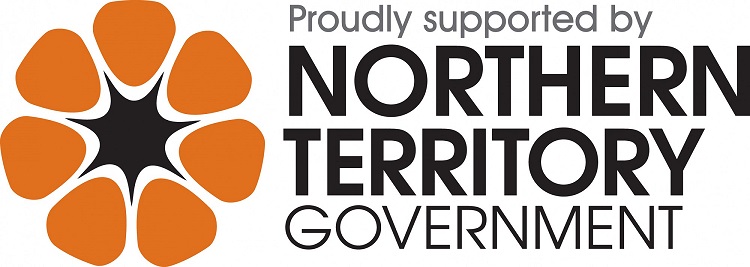TEWLS has produced a range of publications to inform and help women with legal matters
The publications available below explain key areas of civil and family law, as well as provide general information about the law and legal processes.
These publications are not intended to be a substitute for legal advice – if you need legal advice about civil, family and/or migration law matters, you can Contact Us for an appointment or Make an Appointment via our website.
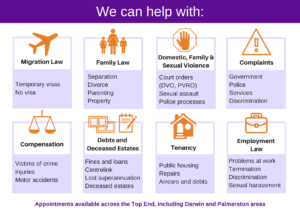 What TEWLS can help you with postcard
What TEWLS can help you with postcard
Information about what TEWLS can help you with, including areas of civil and family law.
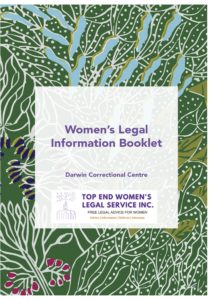 Women’s Legal Information Booklet – Darwin Correctional Centre
Women’s Legal Information Booklet – Darwin Correctional Centre
A legal information booklet for women incarcerated at the Darwin Correctional Centre (DCC), this resource provides a starting point for women to identify legal issues and practical information and steps to resolve these issues.
This resource aims to provide information and support for women incarcerated at the DCC.
Final Report – Legal Health Checks with Women Incarcerated at Darwin Correction Centre
In 2019, TEWLS embarked on a Legal Health Check project within Sector 4 of the Darwin Correctional Centre (DCC). Sector 4 of the DCC houses female inmates and as the site of a regular legal clinic, is an area well-known to TEWLS, as are its occupants.
TEWLS work in sector 4 at the DCC has provided an insight into the women incarcerated there that few others share. Providing civil law services to those women has revealed to TEWLS not only the extent of their legal needs, but the extent of their broader holistic needs, and the ever-continuing reality that if those needs go unaddressed their prospects of successful reintegration into the community remain slim.
In December 2020, TEWLS released the final project report. The report is titled Women Incarcerated at Darwin Correctional Centre – Advocating for and Shining a light on Women Incarcerated at Darwin Correctional Centre – Advocating for and Shining a light on Women Ordinarily Invisible at a Policy, Systems and Structural level
External Resources and Publications
The following external service providers have produced helpful publications and resources in a range of legal areas.
These publications and resources are not intended to be a substitute for legal advice – if you need legal advice about civil and family law matters, you can Contact Us for an appointment or Make an Appointment via our website.
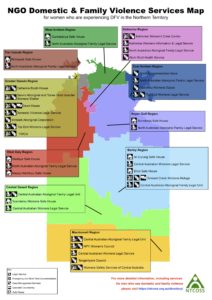 NGO Domestic and Family Violence Service Map of the NT
NGO Domestic and Family Violence Service Map of the NT
Northern Territory Council of Social Service (NTCOSS)
A service map of the Northern Territory for women escaping domestic and family violence.
Further information about this project can be found on NTCOSS’ website here.
 Safety Planning Booklet
Safety Planning Booklet
Dawn House
Do you feel scared at home? A Safety Plan may help.
A Safety Plan can help you see your options and get a better sense of control over your situation.You can access the Safety Planning Booklet via the Dawn House website here.
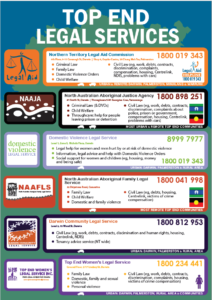 Top End Legal Services poster
Top End Legal Services poster
Northern Territory free legal services
A service map of the Top End of the Northern Territory for people seeking free legal help.
Download this service poster.
 Property Settlement Workbook
Property Settlement Workbook
North Queensland Women’s Legal Service (NQWLS)
This workbook can help if you are: trying to mediate with your partner to reach a property settlement, or preparing an application to a court for a property settlement.
You can access this workbook via the NQWLS website here.
 The Little Black Book of Scams
The Little Black Book of Scams
Australian Competition & Consumer Commission (ACCC)
The best way to protect yourself is through awareness and education.
The Little Black Book of Scams is recognised internationally as an important tool for consumers and small businesses to learn about scams including:
- the most common scams to watch out for
- the different ways scammers can contact you
- the tools scammers use to trick you
- the warning signs
- how to protect yourself, and
- where you can find help.
You can access the Little Black Book of Scams via the ACCC website here.
 Going to Court
Going to Court
Northern Territory Local Court
The Northern Territory Local Court has jurisdiction over most of the criminal and civil matters in the Northern Territory, including criminal charges, domestic violence orders (DVOs) and personal violence restraining orders (PVROs). The Northern Territory Local Court website has information for people going to court, including information about court rules (etiquette). going to court as a witness, and court appearances.
You can access the Going to Court information via the Northern Territory Local Court website here.
 Northern Territory Law Handbook
Northern Territory Law Handbook
AustLII, NT Legal Aid Commission, and Darwin Community Legal Service
The Northern Territory Law Handbook is a resource and practical guide to legal issues that affect people living in the Northern Territory. The layout is similar to a Wikipedia page and the resource includes information about the legal system and different areas of law.
To access the Northern Territory Law Handbook, you can visit the AustLII website here.
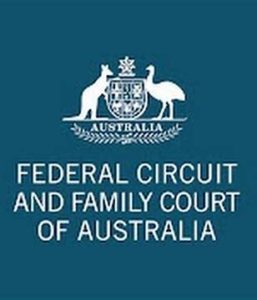 Publications, Brochures and Fact Sheets
Publications, Brochures and Fact Sheets
Federal Circuit and Family Court of Australia
The Federal Circuit and Family Court has produced a range of Publications, Brochures and Fact Sheets for the Family Law jurisdiction, including information for people wanting to apply to the Court for orders, information about separation and stress, and dispute resolution in family law proceedings.
To access the Publications, Brochures and Fact Sheets, you can visit the Federal Circuit and Family Court of Australia website here.
 Do-It-Yourself Kits
Do-It-Yourself Kits
Federal Circuit and Family Court of Australia
The Federal Circuit and Family Court has produced a range of Do-It-Yourself Kits for the Family Law jurisdiction, including service in divorce matters, the production of financial statements in property settlement matters, and initiating applications for all parenting and property.
To access the Do-It-Yourself Kits, you can visit the Federal Circuit and Family Court of Australia website here.





